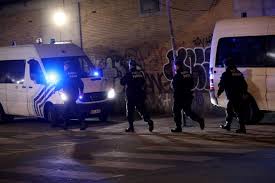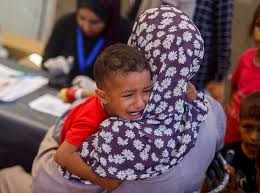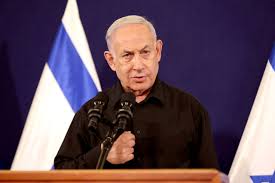Monitoring Desk
A shadow government is breaking taboos in Buddhist-majority Myanmar by welcoming Rohingya into its anti-junta coalition, but many in the long-persecuted Muslim minority are wary after living through decades of discrimination and deadly violence.
Myanmar has been in turmoil since the government of Aung San Suu Kyi was ousted in a February coup, sparking huge pro-democracy protests and a bloody military crackdown.
Dissident lawmakers from her party dominate a “National Unity Government” in exile, rallying support for the resistance among foreign governments and on international news broadcasts.
Last month they invited the Rohingya to “join hands” to end military rule, promising to repatriate those who fled to Bangladesh after a deadly 2017 military assault on their communities in western Rakhine state.
They also pledged to grant citizenship to the minority, which has long been stateless after decades of discriminatory policies.
The use of the word “Rohingya” was new — wary of sentiment among the mostly Buddhist, ethnic Bamar-majority population, Suu Kyi’s government had referred to the community as “Muslims living in Rakhine.”#photo1
But suspicion lingers among those Rohingya still in Myanmar, where they are widely seen as interlopers from Bangladesh and have been denied citizenship, rights and access to services.
“Giving a promise and then getting support from abroad –- it’s like putting bait for fish,” said Wai Mar, who has been living in a displacement camp for almost a decade.
Reached by a bumpy, potholed road from the western city of Sittwe, the wooden huts of Thet Kay Pyin camp shelter Rohingya chased or burnt out of their homes during earlier clashes with ethnic Rakhine Buddhists in 2012.
“We’re worried we exist only to be human shields or scapegoats,” Wai Mar added.
Mother of four San Yee, who struggles to provide for her children even with the remittances her husband sends from Malaysia, agrees.#photo2
“We can’t put all our trust and expectations in them because we’ve been oppressed for so long.”
Despite the overtures, there are no Rohingya representatives among the National Unity Government’s current 32-member cabinet.
– Genocide charges –
“We understood that we wouldn’t get everything overnight” after Suu Kyi’s National League for Democracy swept a military-backed party aside in 2015 polls, another resident of the camp, Ko Tun Hla, told AFP.
“But we even didn’t get basic human rights, for example, freedom of movement, becoming a citizen, returning to our original homes –- we didn’t get any of those.”#photo3
From the camp they heard reports of a horrific crackdown that sent 700,000 of their kinsfolk across the border to Bangladesh, bringing tales of rape, arson and murder.
The Myanmar public was largely unsympathetic to the Rohingya’s plight, while activists and journalists reporting on the issues faced vitriolic abuse online.
After the military was accused of genocide, Suu Kyi travelled to The Hague to defend the generals at the UN’s top court.
Months later they deposed her in a coup.
– ‘Not Rohingya’ –
With anti-junta protesters in majority Bamar cities like Yangon and Mandalay shown no quarter by the military, many in Thet Kay Pyin are fearful.
“As they are killing their own people cruelly and brutally without any hesitation, they would do more to us since they don’t care about us,” said Tun Hla, another resident of the camp.#photo4
A few days after the February coup, soldiers came to Thet Kay Pyin and held a meeting, at first reassuring people and asking them to stay calm, Win Maung said.
“But when we asked for our rights, they spoke in a threatening way.”
“They said we are Bengali, not Rohingya, and they threatened to shoot us too.”
Bengali is a derogatory term for the Rohingya in Myanmar which falsely implies they are recent immigrants from Bangladesh.
Junta leader Min Aung Hlaing — who was head of the armed forces during the 2017 crackdown — has dismissed the word Rohingya as “an imaginary term”.
For many in Thet Kay Pyin, after almost a decade of limbo, political allegiance comes second.
“If they will give our rights, we will cooperate with the military, NLD or NUG,” said Ko Tun Hla.#photo5
“If our rights will be given, we will cooperate with anyone.”
Added San Yee: “I want to go back and live my life as before — that’s my hope.
“But when will our expectation and hope come true?” she sighed. “Only after we die?”
Courtesy: France 24






